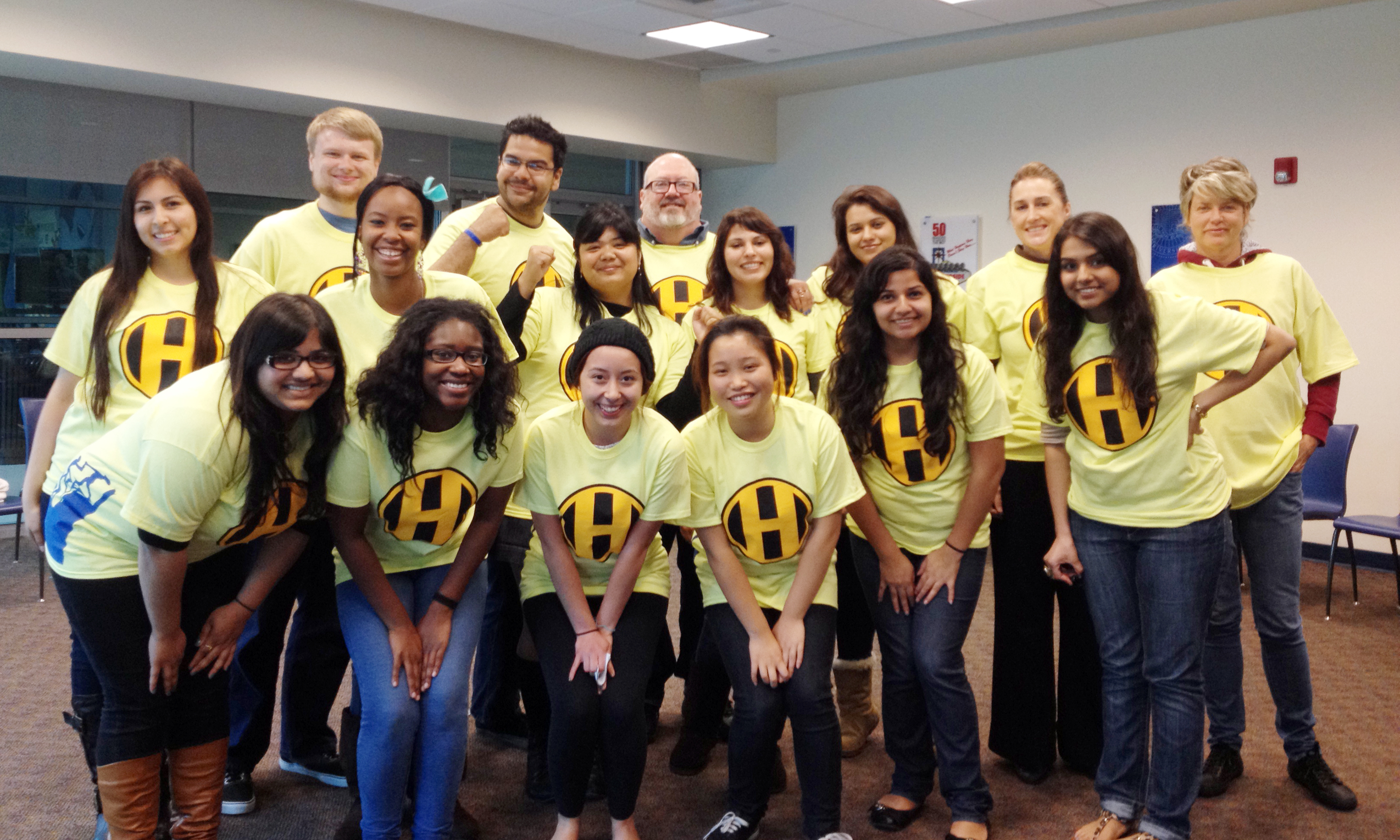
Student group Healing Highlanders win prestigious UC President’s award
Healing Highlanders, a UCR student-run collegiate recovery community (CRC) that promotes student recovery from addiction, has been awarded the UC President’s Award for Outstanding Leadership. They are one of two campus-based organizations that was awarded a $2,000 grant to support multi-campus partnerships in teaching, research and public service. Founded in the spring of 2011, the organization will receive the accolade during the UC Regents’ meeting on May 15.
The President’s Award is not the student organization’s first high-profile recognition. UC Riverside named the Healing Highlanders the New Student Organization of the Year in spring 2012 for achievements in “advocacy, building fellowship and outreach to the larger community.”
“We barely had in the beginning like five members and we grew enormously with 35-40 members. I feel like we’ve also grown very close to each other because this is a student [organization] that is dedicated to basically stigmatizing addiction and promoting recovery from addiction,” said Founder and President of Healing Highlanders Mariel Bello.
This past fall quarter, Healing Highlanders hosted the 2012 California Unified Collegiate Recovery Conference from Oct. 20-21 with the motto “Igniting the Recovery Movement.” The systemwide summit drew participants from all walks of life including Peter Gaumond, the Chief of the Recovery Branch of the National Office of Drug Control Policy.
Through organization’s efforts, other UC campuses have also followed in their footsteps by joining CRCs to support addiction counseling among peers.
The 25-year-old model of CRCs stems from the Center of Addiction and Recovery at Texas Tech University, which supports assisting college students through a peer support system, life skills training and academic and financial resources. In 2004, Texas Tech University was allotted a federal earmark grant through the Center for Substance Abuse Treatment, which is a division of the federal Substance and Abuse and Mental Health Services Administration (SAMHSA).
According to the SAMHSA, the grant supported “a model program [that] meets the highest scientific standards and its developers have the capacity to provide high-quality material, training and technical assistance to communities that wish to use the program.”
Students may experience the effects of withdrawal by breaking away from their addictions, which includes but is not limited to sex, pharmaceutical medication, gambling, alcohol and drugs. In response, Healing Highlanders applied the 12-step Recovery Program, which seeks to help students combat their obsessions with the assistance of a support group.
Associate Director for Residence Life and Healing Highlanders Advisor Audrey Pusey said, “UCR students are on the cutting edge of the kind of proactive program that really promotes change.” Pusey is a founding member of the Association of Recovery in Higher Education, which oversees a network over collegiate recovery programs throughout the country. “They create a sense of community that students in recovery urgently need in order to succeed academically and maintain long-term recovery, and they serve as a resource for students who may be continuing to struggle with addiction-related problems,” said Pusey.
According to a report by the U.S. Department of Education, substance abuse and addiction often cause academic barriers for college and high school students. The report, titled “Strategic Plan: Fiscal Years 2011-2014,” aims to facilitate academic performance for all ages such as through the reduction of school violence and substance abuse.
“Each student touched by recovery support programs such as this one is potentially a life saved,” said UCR Interim Chancellor Jane Close Conoley. “The Healing Highlanders show the compassion and understanding that students snared by drugs, alcohol and similar disorders so desperately need, and in so doing they transform lives and they transform themselves. We have to remember that addictive disorders are diseases like any other and we must be proactive in providing support so that these students can complete their studies successfully.”
The other President’s Award recipient was the UC Student Association, which founded the project entitled UCweVote as a unifying force for the “Generation of Action” movement accounting for the 52,000 UC students who registered to vote last year.








